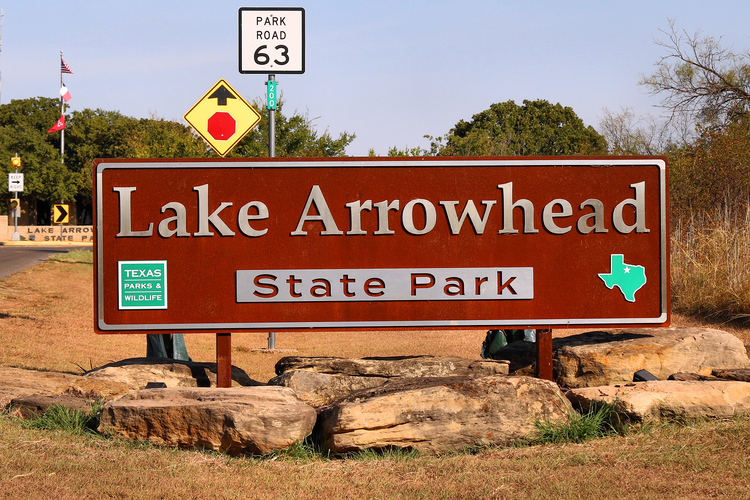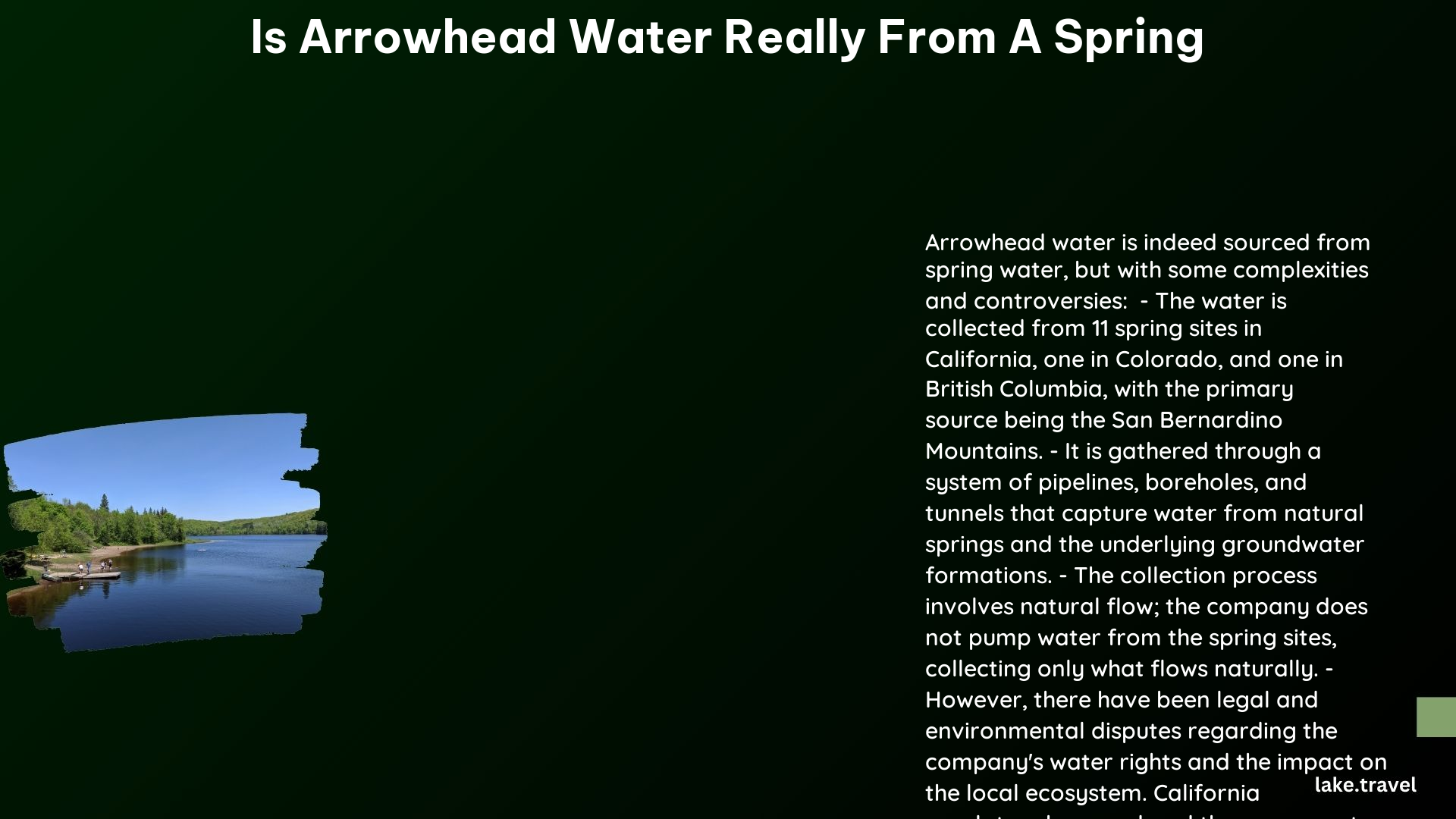Arrowhead Water, a popular bottled water brand, claims to source its water from natural springs. This article examines the evidence, verification processes, and regulatory challenges surrounding this claim. We’ll explore scientific testing methods, historical data, and legal issues to determine if Arrowhead Water truly comes from spring sources as advertised.
What Scientific Evidence Supports Arrowhead’s Spring Water Claim?

Arrowhead Water’s spring water claim is supported by several scientific methods and data points:
- Mineral Content Analysis: The water undergoes rigorous testing for its mineral composition. Here’s a breakdown of the mineral content:
| Mineral | Concentration (mg/L) |
|---|---|
| Calcium | 20.4 |
| Chloride | 13.2 |
| Bicarbonate | 81.1 |
| Fluoride | 0.1 |
| Magnesium | 3.6 |
| Potassium | 1.5 |
| Sodium | 11.1 |
| Sulfate | 3.8 |
Total Dissolved Solids (TDS): 129 mg/L
- Regular Quality Control: BlueTriton Brands, the company behind Arrowhead Water, employs a team of experts including engineers, geologists, and hydrogeologists. These professionals conduct:
- Habitat assessments
- Water level monitoring
-
Water flow measurements
-
Compliance with FDA Standards: The water undergoes frequent testing to ensure it meets all FDA requirements for spring water.
How Does Arrowhead Verify Its Spring Sources?

Arrowhead Water’s spring source verification process includes:
- Multiple Spring Sources: The water is sourced from 13 mountain springs located in and west of the Rockies.
- Original Source: The primary source is the Arrowhead Spring in the San Bernardino Mountains.
- Regulatory Inspections: The company conducts tours and inspections with:
- Forest Service officials
- State Water Resources Control Board representatives
- Transparency: During these tours, the company demonstrates:
- The exact points where springs emerge
- The collection systems in place
What Historical Evidence Supports Arrowhead’s Spring Water Claim?
The historical evidence supporting Arrowhead’s spring water claim includes:
- Name Origin: The brand name “Arrowhead” comes from a natural arrowhead-shaped formation in the San Bernardino Mountains.
- First European Documentation: The Arrowhead springs were first documented by Europeans in the 1820s.
- Health Benefits: By the late 1800s, the springs gained fame for their supposed health benefits.
- Company Formation: The Arrowhead Springs Company was established in 1909.
- Continuous Marketing: Since its inception, the water has been consistently marketed as a spring water product.
What Legal Challenges Has Arrowhead Faced Regarding Its Water Rights?
Arrowhead Water has faced several legal and regulatory challenges:
- 2017 Investigation: The California Water Resources Control Board investigated Nestlé’s (now BlueTriton Brands) water rights.
- Findings: The investigation concluded that the company lacked rights to approximately three-quarters of the water it was extracting.
- Regulatory Actions: This led to further regulatory measures and legal disputes.
- Expired Permits: The company has faced issues with expired permits for water collection in the San Bernardino National Forest.
- Ongoing Scrutiny: State authorities continue to investigate and regulate the company’s water rights and collection methods.
How Accessible Are Arrowhead’s Spring Sources to the Public?
The accessibility of Arrowhead’s spring sources is limited:
- Protected Area: The spring sources are located in the San Bernardino National Forest, a protected area.
- Restricted Access: Due to the remote and protected nature of the area, visiting the exact spring sources is generally restricted.
- No Public Tours: There are no public tours or facilities available for general access to the spring sources.
- Environmental Concerns: Limited access helps protect the natural environment and water sources.
What Do Consumer Reports Say About Arrowhead Water?
Consumer opinions on Arrowhead Water are mixed:
- Positive Reviews: Some consumers praise the water for its crisp and refreshing taste.
- Negative Feedback: Others report dissatisfaction with the flavor.
- Taste Variability: The subjective nature of taste leads to varied consumer experiences.
- Environmental Concerns: Some consumers express concerns about the environmental impact of bottled water production.
In conclusion, while Arrowhead Water does source its product from natural springs, the company has faced regulatory challenges and scrutiny regarding its water rights and collection methods. The scientific evidence and historical data support the spring water claim, but ongoing legal and environmental concerns continue to surround the brand.
References:
1. Wikipedia – Arrowhead Water
2. BlueTriton Brands
3. The Desert Sun – Arrowhead Bottled Water
